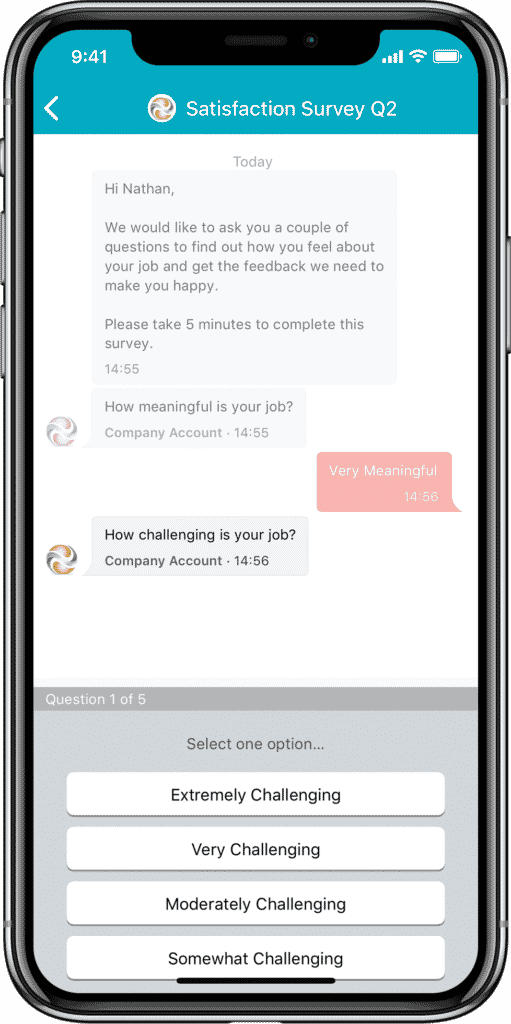The tech world is often seen as progressive when it comes to work-life initiatives, so it was especially eye-opening to read the following quote from an industry powerhouse: “There’s no such thing as work-life balance. There’s work, and there’s life and there’s no balance.”
That was the opening for the release of Sheryl Sandberg’s New York Times bestseller Lean In. In the book, Sandberg, the COO of Facebook, recalls pumping breast milk during conference calls and keeping the fact she left the office at 5:30 pm for family time a secret by constantly answering emails when she was home.
This speaks volumes about the impact the lack of work-life balance can have on the overall employee experience. Human resource managers and company executives often pay lip service to work-life initiatives, but often do not set a good example themselves and rarely implement the necessary steps to improve work-life balance in their companies.
“If top management regularly logs 60-80 hour workweeks, the expectation is that lower-level employees will do the same.”
– Cheryl Palmer, Owner of coaching firm, Call to Career
If executives aren’t responsible for helping to maintain work-life balance among their employees, who is? Human resource managers typically create workplace policies to ensure that employees maintain a healthy work-life balance.
So, what can HR do for employees to improve their experience?
Here are three ways human resource management (HRM) can take steps to improve work-life balance for employees using mobile technology.
1. Surveys Are One of the First Steps To Improve Work Life Balance
It’s hard to diagnose the culture issues in your company if you don’t know what areas need to be improved, added, or addressed. Often, communication is strictly top-down which limits the amount of insight leaders have of the employee experience. But a workplace app creates two-way communication which lets employees express what they need.
Consider using mobile technology to send anonymous digital surveys to get honest employee feedback. You can also present a series of new culture-building initiatives focused on employee engagement to test what would make the most impact on your workforce.

When formulating your survey, make them engaging to encourage participation. For example, try gamification to make an otherwise staid survey more fun. Follow these three steps to make data-driven decisions that will improve the employee experience:
- Send out the survey. In either open-ended or multiple-choice questions—or a combination of the two—craft a survey designed to elicit detailed, honest responses from employees. Ask specifically about what policies are impacting their ability to balance their home and work lives. Ask what opportunities would make their lives easier and make them happier and less stressed at work.
- Share the results with everyone. To let your staff know you take what they say seriously, and to hold your leadership team accountable, share the results of the survey with your employees over the workforce app. Transparency with information also boosts employee engagement.
- Take action! Now that you’ve collected the results, review them and begin to implement policies that reflect what your employees want out of their job and the company. Develop ways HR professionals can support organizational strategies for efficiency while also improving the employee experience.
Pro tip: Work-life balance means different things to different employees. Make sure every employee is included in your mobile surveys.
2. Offer Flex-Time To Boost Employee Happiness
If there’s one business strategy that gets clear engagement results, it’s flex-time. According to a recent study by Staples, 90% of employees said more flexible schedules would boost morale in their companies.
This is due in part to the changing demographic of today’s employees. Millennials now make up the majority of the global workforce and they have different priorities than past generations. They’ll take a job with more flexible work options over more money.
More companies are offering flex-time options, thanks in part to Millennial managers now shaping corporate policies that include flexible work arrangements in their companies.
If you think your executive team will balk at the idea of a flex-time policy, speak to how it can be used to hire the best talent to your company, improve retention, and reduce the cost of replacing employees. Remind them that today’s workers are more likely to leave a job for a company that offers flex-time options.
As an alternative, you can also institute ‘a use it or lose it’ policy for vacation time. This will further encourage employees to take time off when it is necessary. Doing so actively incentivizes and demonstrates the importance of self-care for your workforce, which is an essential component of work-life balance.
3. Make Work-Life Initiatives Essential to Company Culture
Employee burnout is real, so don’t just leave work-life balance discussions for company handbooks and employee orientations. Schedule quarterly seminars as an employee engagement activity to help your teams understand the importance of striking such a balance for both them and the company. Use these teachable moments to promote better work and personal habits, and also discuss ways to manage workloads.
A mobile workforce app can further embed your values in your culture and support your employees’ mental well-being by:
- Creating a channel for managers to do a digital check-in with employees individually
- Giving workers access to documents pertaining to work-life balance in HRM materials via the app’s secure file sharing
- Establishing peer-to-peer connections to forge friendships, an essential element of people liking where they work
- Enabling colleagues to trade shifts or arrange coverage directly with one another
- Offering time-management tips to workers to help them maximize productivity each shift
- Creating a communication stream dedicated to worker well-being
Frequent internal communication dedicated to promoting employee experience shows your workforce that you truly want them to thrive in both their personal and professional lives.
If Winston Churchill was able to take an afternoon nap every day, we can certainly fix our work-life issues, and HR has the tools and the know-how to lead the way!
Learn how optimizing the employee experience can make your workforce more productive in our latest eBook!
Most Frequently Asked Questions
Work-life balance is an employee’s ability to manage his personal and professional responsibilities.
1. Surveys Are One of the First Steps To Improve Work Life Balance
2. Offer Flex-Time To Boost Employee Happiness
3. Make Work-Life Initiatives Essential to Company Culture
Maintaining a healthy work-life balance can reduce stress and helps prevent burnout within an organization.




